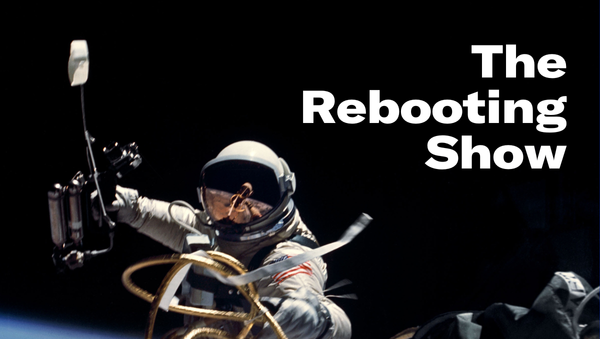False choices
There's no "right" way to build a sustainable media business
Welcome to this week’s issue of The Rebooting. With the election and Covid in the rear-view mirror, I’m refocusing again on getting the podcast up and running. I’d say Thanksgiving is a good target date. This week, I wrote about many of the false choices in the media business, the tendency of companies to focus on unimportant things, the latest twist in the Quartz saga, and the virtual events glut.
Avoiding false choices in media
One of the legacies of the Trump era is a tendency to present complex issues as simple binary choices. We can either arrest the virus or save the economy. Capitalism or socialism. Reconciliation or accountability. Polling or beat reporting
Life is more complicated. We need to confront the virus on various fronts and make tradeoffs with encouraging the economy’s healing. We need to expand social safety nets and redistribute wealth, within generations too, in order to save capitalism. We can work to understand better why 70 million Americans wanted four more years of Trump while our institutions shine light and bring accountability to a dubious era. And to truly understand what’s going on, we need to improve data collection and be open to supplementing it with what we can see with our own eyes and learn by listening to people.
The media business is not immune to falling prey to false choices. Here are some to avoid:
Subscriptions or advertising. The pivot to paid is overall a healthy trend for many publishers, but subscriptions aren’t a savior. Ads still have a role, sometimes as the main plank of media business models. The success of Axios, Morning Brew and Dotdash prove that. And ads can work with subscriptions -- look at the success Bloomberg is having in targeting subscriptions and high value advertising in streaming.
User experience or monetization. Anytime I mention the atrocious experience on a local news site, I hear excuses. Craigslist, Google and Facebook, etc. The indirect business model of ads separates the audience from the customers. That ends up leading to tradeoff in favor of the advertiser at the expense of the audience. The strongest media models are those with loyal communities. Treating people like shit isn’t a great path to loyalty.
Data or sensibility. There has never been more data in publishing, but much of it is garbage. And the data will sometimes tell you to do weird things. There’s a reason every email newsletter puts an emoji in the subject line. These kinds of growth hacks have their limits, and often lead to a lack of differentiation because your competitors have similar data. The best approaches use data but not as a replacement for a viewpoint.
Niche or scale. Niche is often used as a backhanded compliment. It is a polite way of saying small. That’s changing. The most successful publishers have a tight focus on communities. That means even large publishers are looking to nail niches. Add up enough niches and a media company isn’t necessarily small..
Focus on what matters, ignore the rest
There is a lot of noise in the media industry. It is an over-covered area, and there’s a tendency no matter what to get focused on what others are doing. I saw this up close at Adweek, where we would scramble to “match” Ad Age rather than focus on doing our thing. At Digiday, we wanted to squarely focus on differentiation. I actually didn’t read Adweek, Ad Age, Mediapost or most other competitors. (I used to say, “The world doesn’t need another Mediapost.”) One of the biggest strategic advantages is being able to focus on what’s important -- and that’s almost never “optics” or what someone else is doing. Have a clear strategy that everyone internally understands, with metrics in place to assess tactics used to execute on the strategy. Leave the optics stuff of trying to puff out your chest to others.
The Quartz do-over
Quartz is now independent. After being incubated by The Atlantic, sold off in a weird fit to Uzabase, Quartz’s management is now taking control (and looking for capital). I have a lot of respect for Quartz for its commitment to do things its own way. To my taste, Quartz focused too much of packaging instead of true product differentiation, which in media is the content. Anyone can make an app or email newsletter with bullet points. The new approach -- make business better -- is a step in that direction by aligning the editorial strategy with the needed changes to save capitalism. That’s a clear editorial strategy -- assuming it is executed -- in comparison to “Quartzy” obsessions that often felt like an incoherent jumble of randomness. The question is whether there’s sufficient capital to execute this awfully broad mandate.
The virtual events glut
The news that Pfizer has very promising results in a trial of a coronavirus vaccine is welcome news even with all the caveats. With deployment likely to start by the end of the year, there’s the possibility of seeing an end in sight to the pandemic and a slow return to normal life. All that said, I would expect the events industry to remain on hold for a majority of 2021, even if companies are putting in person events up on their calendars.
That means muddling through with digital events, which have been a mixed bag as replacements to in-person gatherings. On the plus side, the programming and content experience for in-person events is arguably superior. The production quality keeps improving. Event tech provider Hopin raised $125 million at a $2 billion valuation, promising even more improvements in both broadcast quality and interaction capabilities. What’s more, the margins for virtual events can be better than in-person since the majority of the costs get stripped out. But virtual events so far can’t compete with in-person events when it comes to networking. The truth of many industry events is the programming is a distant second to networking. I would always tell our team that the cocktail parties are as important as the keynote sessions. That’s hurt events as sales drivers, which means sponsors won’t pay as much.The answer from nearly every company: Increase the volume to make up for the far lower top lines.
Needless to say, expect the events to come in torrents over the next nine months. The outstanding question is what awaits on the other side, a return to status quo or a Napster moment. I’m in the middle, believing Covid will hasten a needed shakeout of the glut of events as more companies scrutinize business travel expenses that went straight to the bottom line when cut. (Amazon saved $1 billion on corporate travel.) But the strongest events, particularly those focused on driving sales, will emerge stronger, albeit with hybrid virtual and in-person approaches.
Things to read
One of the most compelling media stories coming out of the election will be the brewing ideological civil war at The New York Times. The Trump era unleashed the woke genie from the bottle, and there is unlikely way to put it back in. Expect to read many battle dispatches from the Times Slack.
There are advantages to having The Terminal. One of them is the ability to place big bets. Bloomberg Media made an ambitious move into streaming with Quicktake, formerly TicToc. (The choice of name was always unfortunate timing, since it was chosen before Bytedance rebranded Musically as TikTok.) As mentioned, the digital ad market for streaming is large and growing. By focusing on direct revenue from subscriptions and a large and growing area of advertising, Bloomberg can benefit from having the resources to take the long view.
Spotify’s purchase of Megaphone is another sign of podcasting becoming a platform-dominated field like the rest of digital media. The craft days are ending. That means more focus on data and targeting specific audience segments. Publishers are destined to fill the lane of production studios. Nick Qwah has a good analysis of the $235 million deal.
Industry Dive is a great example of a niche media company executing a solid strategy -- and showing that ads can be a great business.




